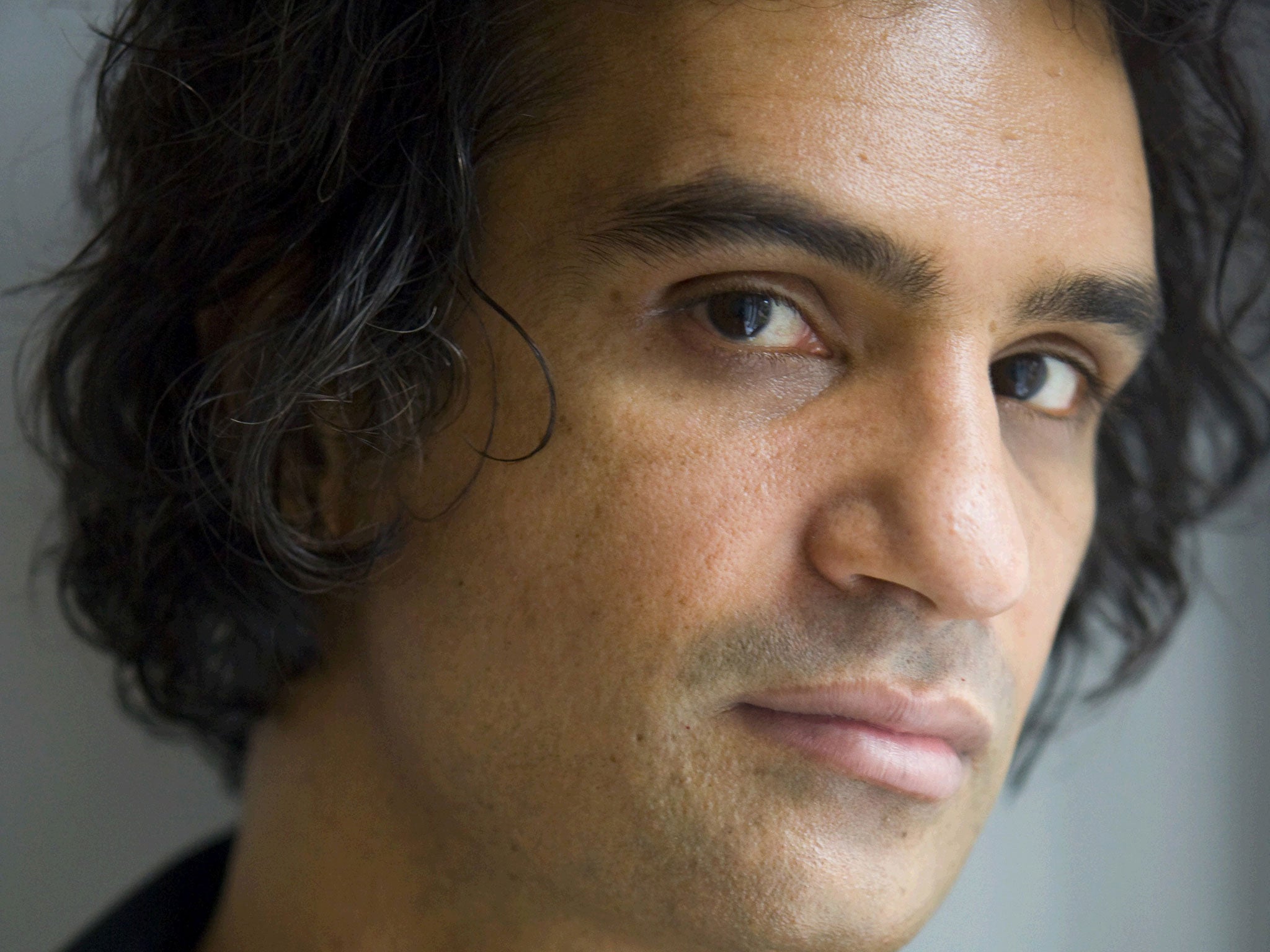The Blind Man's Garden, By Nadeem Aslam Faber and Faber £18.99
This poetic but devastating novel about Islamic extremism and the conflict in Afghanistan has the authenticity of lived experience

Once or twice a year, a book stuns me. Nadeem Aslam's fourth novel, The Blind Man's Garden, has done just that. My expectations were high: Aslam has won a clutch of prizes. But the power of this extraordinary novel is still jarring.
Aslam was born in Pakistan and lived there until he was 14. He has travelled extensively in Pakistan and Afghanistan, and the experience imbues his depictions of life there with veracity. The Blind Man's Garden, like his third novel, The Wasted Vigil, focuses on Afghanistan's recent history.
It is October 2001. Jeo and his foster brother leave their home in Pakistan to travel to Afghanistan, to help casualties of the new conflict between the Taliban and West. However, they are unwittingly sold to the Taliban, and from there, fall into the hell of war.
From the first, it is obvious that this is not an ordinary war novel. Rich imagery, sage reflections, and immaculate prose are evident on every page. In the first paragraph, Rohan gazes at his house, lit by candles. "Wounds are said to emit light ... as the candles burn Rohan thinks of each flame as an injury somewhere in his house." This is not empty symbolism; the wounds soon become apparent.
As in The Wasted Vigil, Aslam's depiction of the horror inflicted by fundamentalist Islam on its own, especially women, is unflinching. A female character muses that every day she hears of women being murdered or disfigured in the name of "honour". Raped women can only press charges if there are four male witnesses willing to testify. If there aren't, the woman may herself be punished. Women who have lost family are fearful of visiting the graves, because "guardians of decency" (sadly, often female), beat them.
Aslam paints a chilling picture of Pakistan's government and army colluding with terrorism. The pressure on young men to become jihadists is illuminated. Piety discounts are offered for jihadists buying guns. Radicals in Pakistan urge residents to jihad. Young boys with no experience of war are sold to the Taliban and duly slaughtered.
Despite the atrocities Aslam depicts, his view on Islam is nuanced. He enumerates achievements of peaceful Muslims: trigonometry in Mecca, paper in Cordoba, science in Cairo, a house of wisdom in Baghdad. Rohan is a good man who regrets his own zealous dedication to Islam in the past. Aslam also shows us how difficult life is for ordinary people in Pakistan. The police are often corrupt. When Jeo's wife disappears, they refuse to investigate and declare that, on return, the girl will be prosecuted unless they are paid. Medicine, too, is expensive and morally bankrupt: a man considers selling a kidney to procure the ransom for his son's return.
Nor is the ardent pursuit of terrorists by the Americans exempt from criticism. Passages set in a military prison deliver a right hook that leaves one reeling. Afghan warlords were paid for every Taliban member handed over, so civilians as well as terrorists were sold, detained and subjected to inhumane Guantanamo-style treatment. Sleep deprivation, manacles, incarceration, interrogation, mind games and verbal abuse are meted out to all prisoners: innocence is difficult to prove when there is a presumption of guilt.
Yet despite the ugliness of war, this book glows with a radiant beauty. The natural world almost transcends the atrocities, so sensuously is it described. There is something mellifluous, almost melodic, about the gently poetic descriptions of wildlife, where "hibiscus blossom sway on the vine like birds", or fireflies are "blazing jewels". The metaphors are potent, the birds caught by a bird-catcher's snares and the ant stuck in a shallow groove where the word Allah has been carved on a surface representing those trapped in the prison of fundamentalism. Striking synaesthesia ("The air is cold and blue") and effortless similes ("winter will arrive soon, like a blade opening") shine.
The construction is meticulous, with deft symmetries: Rohan's late wife painted the life in their garden, yet with cruel irony, Rohan's blindness robs him of this comfort. Rohan argued with his wife over his adherence to Islamic edicts, but he realises her more secular approach, far from being apostasy, was more humane. Rohan's great-grandfather raised horses and supported the British during the Mutiny of 1857, and Rohan in turn is appalled by 9/11. As Jeo travels to Afghanistan, the nefarious fundamentalist who sold him to the Taliban reads a passage about horses in the Koran.
The poignancy is gut-wrenching. Loss – of sight, of loved ones – is conveyed with deep pathos. When Rohan's sight has failed, he can conjure up the colour red by touching a warm surface; stars by holding his hand out in the rain.
Tiny flaws include a preponderance of coincidences and one clause too many in an otherwise stunning sentence containing four commas on page 35. Man Booker judges: don't miss this.
Subscribe to Independent Premium to bookmark this article
Want to bookmark your favourite articles and stories to read or reference later? Start your Independent Premium subscription today.

Join our commenting forum
Join thought-provoking conversations, follow other Independent readers and see their replies